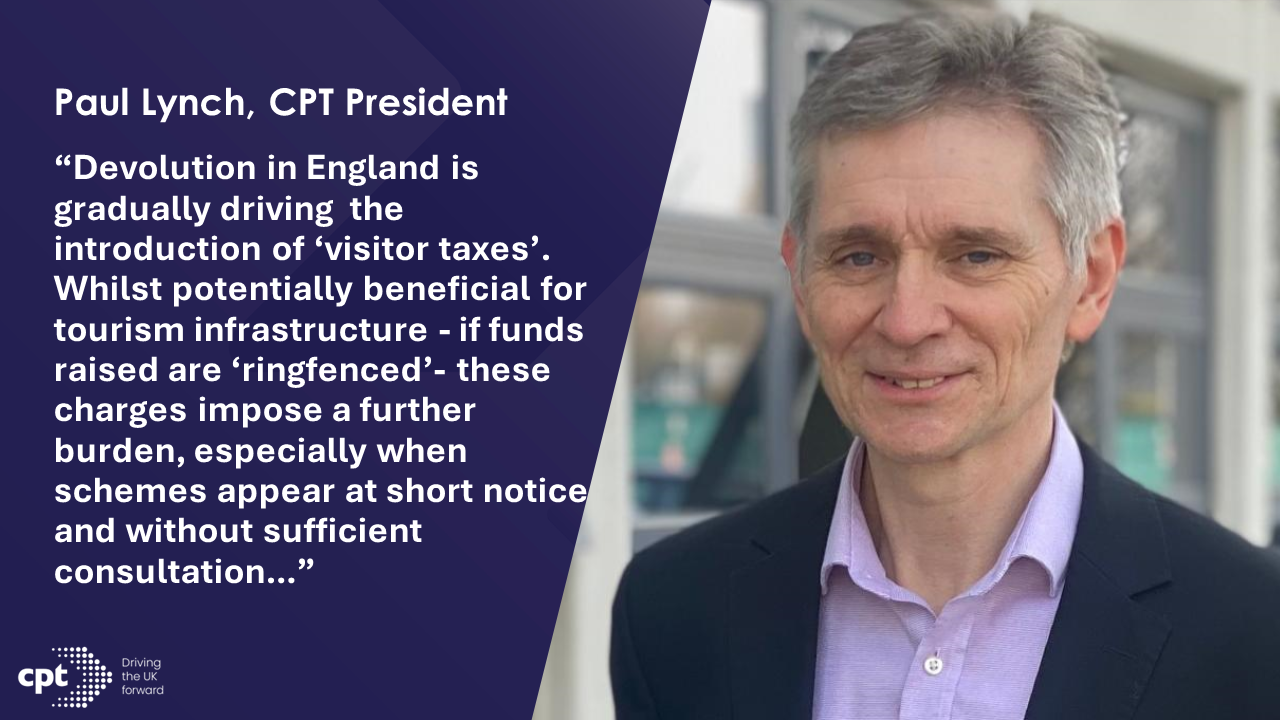June 17 2024
President Paul Lynch explains how CPT is working to combat an under appreciation of the coach sector at local and national level
CPT has been flagging concerns about the new biometric Entry/Exit System set to impact international travel through Dover and elsewhere, but there are a number of emerging issues that could affect domestic coach tourism:
As you will know, in the Cotswold village of Bourton-on-the-Water, when commercially provided coach parking was withdrawn the local authority refused to adapt part of a spacious car park to provide a replacement option - even though operators accept that coach parking charges would be levied. In many ways this case is emblematic of a continued lack of understanding about coach’s contribution to the local economy, but encouragingly a recent survey by the local MP (Geoffrey Clifton Brown) found 85% of the 863 residents and business owners who responded recognise that coach tourists are (quite or very) important to Bourton’s economy.
From its work on behalf of coach members to improve matters, CPT knows however that it‘s not just smaller local councils who lack understanding about coach. Edinburgh City Council has for some time been pursuing a strategy to minimise vehicle access and traffic in the city centre. This is a laudable aim that coach and bus can help achieve, but a proposal involving permits and coach limits seems complicated and likely to discourage all involved. The National Trust for Scotland has also imposed a ‘per passenger’ coach parking charge at its popular Glenfinnan Visitor Centre without any consultation, rendering 2024 trips already costed & quoted suddenly potentially uneconomic.
Devolution in England is meanwhile gradually driving the introduction of ‘visitor taxes’. Whilst potentially beneficial for tourism infrastructure - if funds raised are ‘ringfenced’- these charges impose a further burden, especially when schemes appear at short notice and without sufficient consultation as in Bournemouth, Christchurch & Poole. There are other examples of price penalties specifically imposed on coaches, such as the recent 33% increase for setting down & picking up groups at Bristol Airport. The poor recognition regards the sustainability of coaches implied by such changes speaks for itself.
CPT has worked hard to counter the poor appreciation of coach’s value by publishing key statistics on the sector’s contribution to the economy, society, and the environment. Recently it has commissioned new research into the economic contribution of coaches to local economies to strengthen the evidence base.
As part of its ongoing work on issues affecting the coach sector CPT recently responded to the Government consultation on 18/19 year- old drivers, highlighting that the next government needs to pick up this issue and act. An online guidance toolkit from CPT’s Zero Emission Coach Taskforce will shortly appear on the members’ area of the CPT website. CPT will also host a day on coach tourism to West Yorkshire attractions, and several councils or destinations are due to receive or renew their ‘Coach Friendly’ award this summer. A meeting is also planned about coach & LTPs with the Heads of Transport from the seven North East authorities, and work continues on a coach strategy for the Western Gateway in particular, and to ensure coach is considered fully by local authorities as they write and revise their Plans and Strategies.
Coach is a vital national resource that is too often underappreciated, so whether despite or because of the general election, CPT continues to work hard on many issues and to make the case for its coaching members.
First published in Route One Magazine, 17 June 2024
